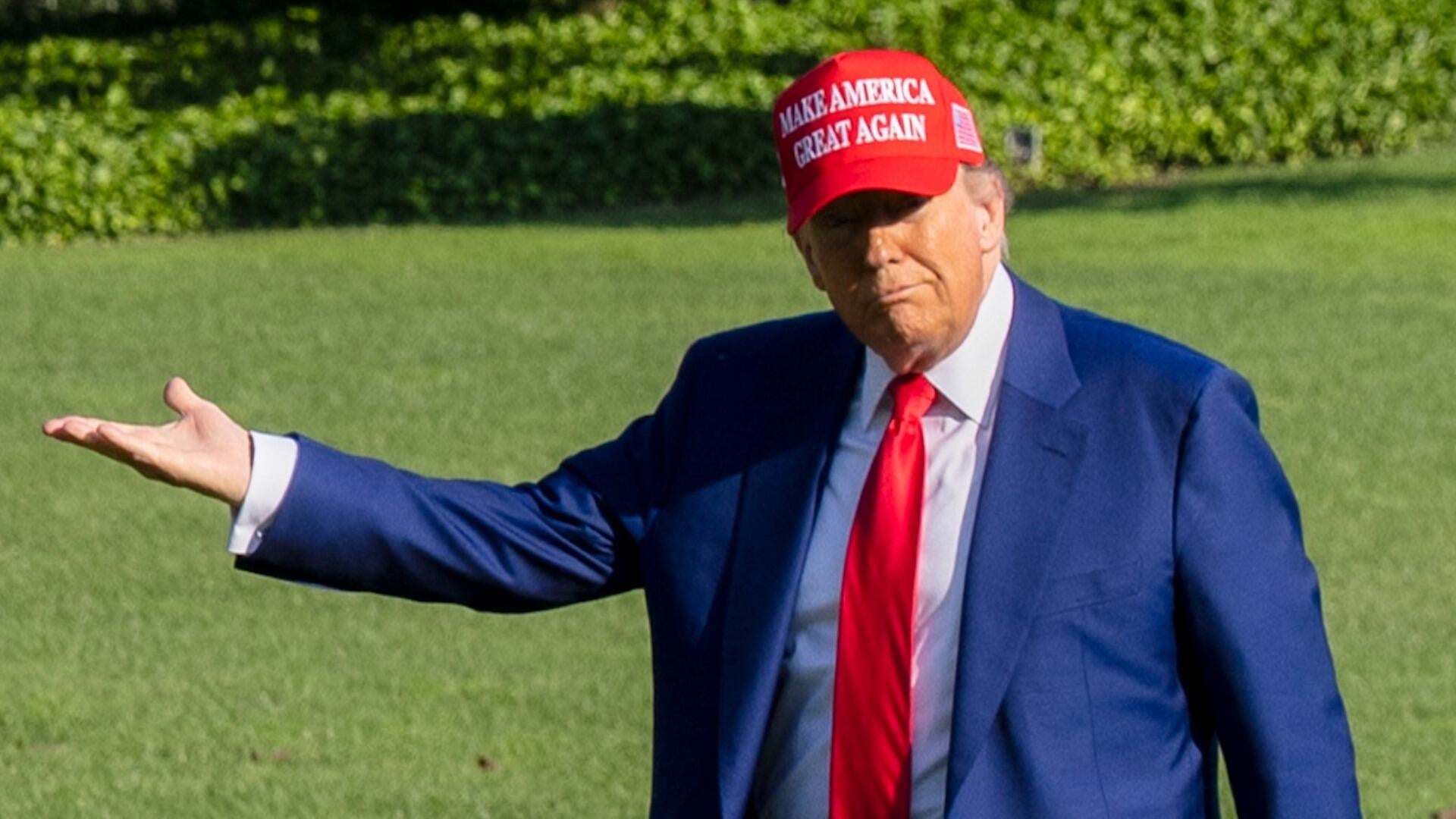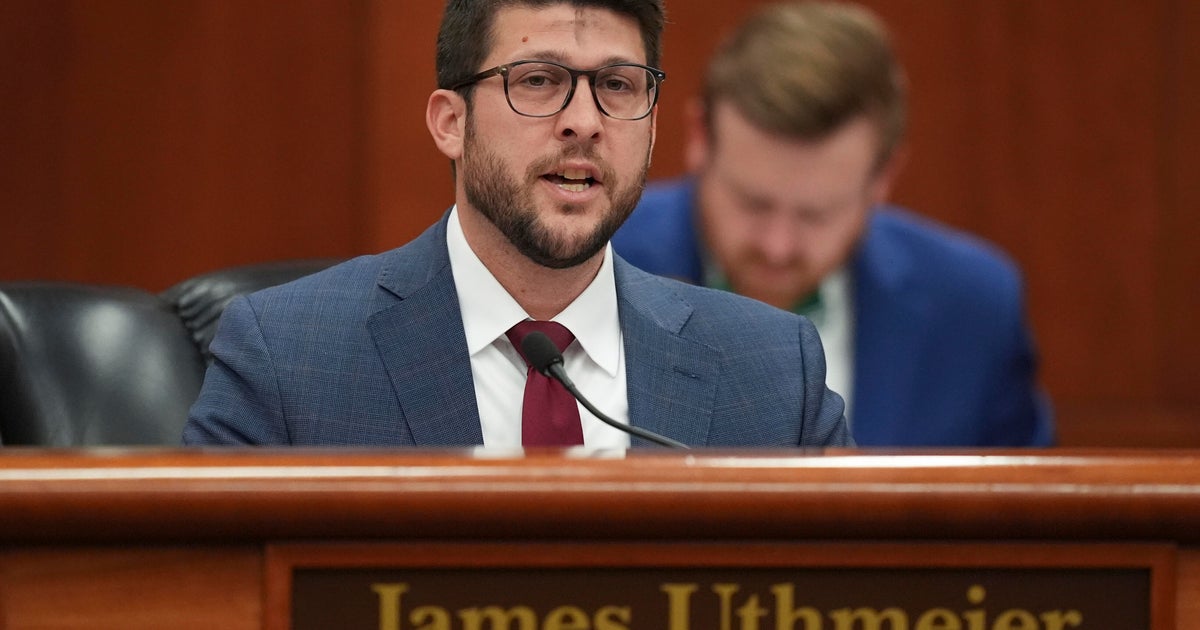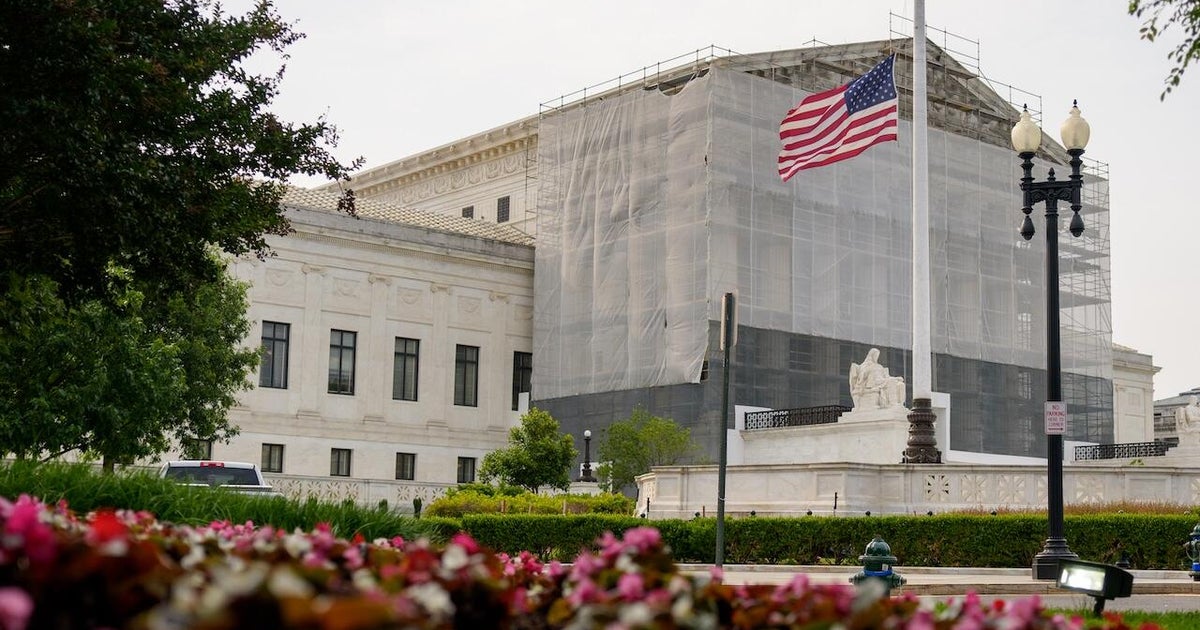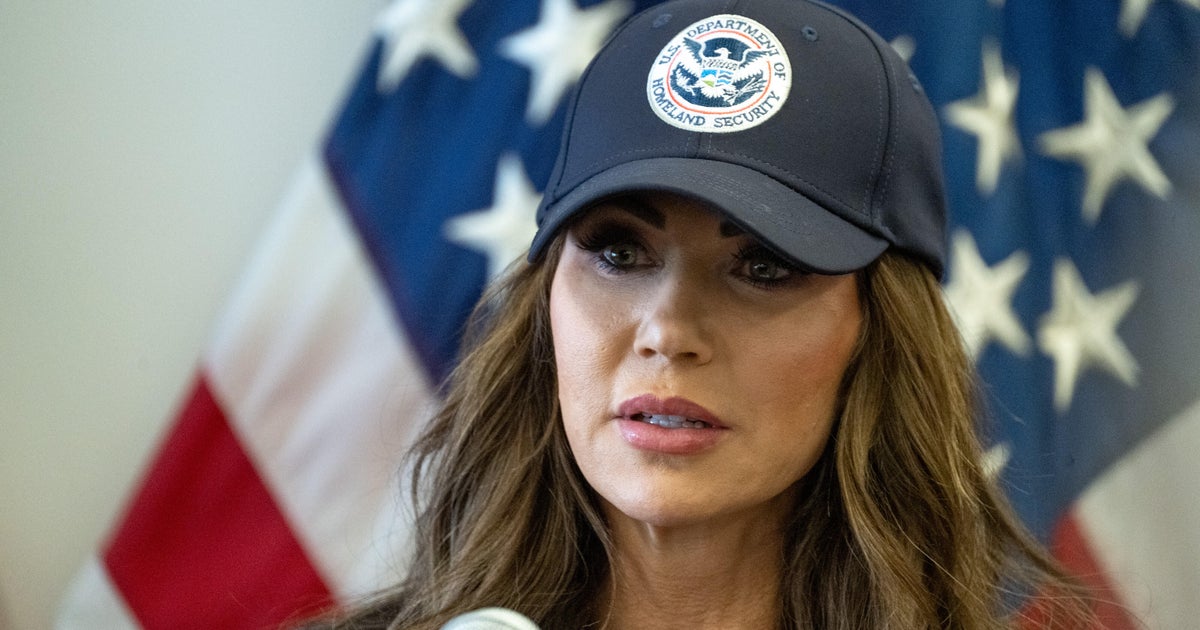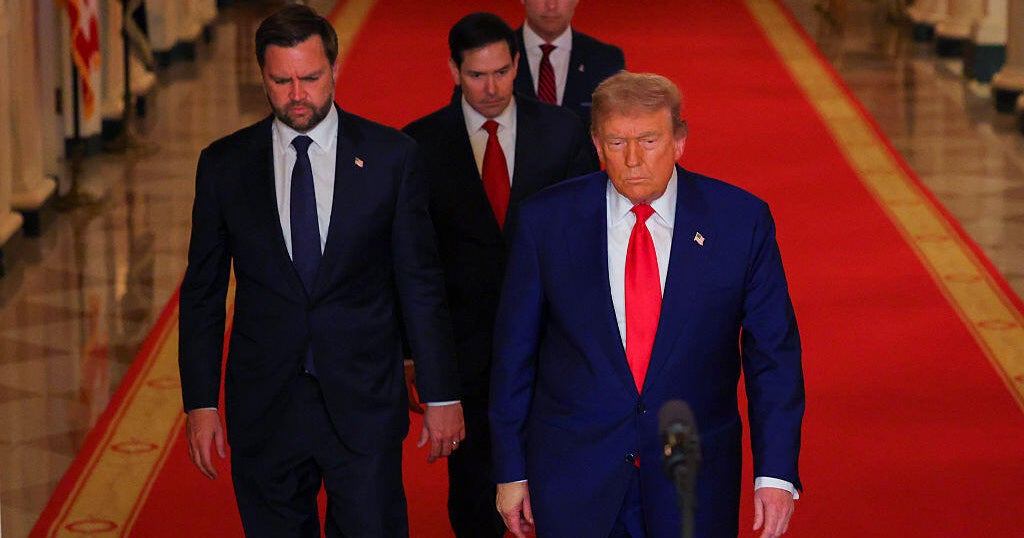Supreme Court lets Trump administration resume deportations to third countries without notice for now
Washington — The Supreme Court on Monday lifted a lower court order that prevented the Trump administration from deporting migrants to countries that are not their places of origin without first giving them the chance to raise fears of torture, persecution or death.
The from the high court is a victory for the Trump administration, which has faced recent setbacks from the justices in its efforts to swiftly deport migrants as part of its crackdown on immigration. The Supreme Court's order clears the way for the Trump administration to resume deportations to third countries while legal proceedings continue.
Justices Sonia Sotomayor, Elena Kagan and Ketanji Brown Jackson dissented from the court's decision Monday regarding third country removals.
In a dissenting opinion, Sotomayor accused the federal government of "flagrantly unlawful conduct" and called the majority's decision to intervene at this stage in the case "inexcusable."
"The government has made clear in word and deed that it feels itself unconstrained by law, free to deport anyone anywhere without notice or an opportunity to be heard," she wrote, joined by Kagan and Jackson.
Sotomayor said that the court is "rewarding lawlessness" with a decision that will undermine the foundational principle of due process.
"Apparently, the court finds the idea that thousands will suffer violence in farflung locales more palatable than the remote possibility that a district court exceeded its remedial powers when it ordered the government to provide notice and process to which the plaintiffs are constitutionally and statutorily entitled," Sotomayor said. "That use of discretion is as incomprehensible as it is inexcusable."
In a statement to CBS News, the Department of Homeland Security called the Supreme Court ruling "a victory for the safety and security of the American people."
"DHS can now execute its lawful authority and remove illegal aliens to a country willing to accept them," the statement read in part. "Fire up the deportation planes."
The Supreme Court's latest order came in a court fight over the Trump administration's efforts to swiftly deport some migrants to third countries, or countries other than the ones designated on an order of removal. As part of Mr. Trump's immigration agenda and plans for mass deportations, his administration has approached nations like Costa Rica, Panama and Rwanda about accepting migrants who are not their citizens.
The administration has also already entered into an arrangement with the government of El Salvador to detain Venezuelan migrants who it claims are gang members, though a "60 Minutes" investigation found most have no apparent criminal records. The migrants have been confined at the notorious Salvadoran prison known as CECOT, often under a 1798 wartime law.
The Supreme Court previously said in a pair of decisions arising from other emergency appeals that migrants facing deportation under that wartime law must receive notice and an opportunity to challenge their removals in court.
Four migrants from Latin America filed a broader lawsuit in March on behalf of a nationwide class of all people potentially subject to third-country removals and argued they are entitled to notice and an opportunity to contest their removals on the grounds they fear persecution, torture and death.
In the weeks after the suit was filed, administration officials were engaged in a simmering showdown with a Boston-based federal judge, who in April found that the government had violated migrants' due process rights and blocked immigration authorities from quickly removing them to third countries unless certain steps are first taken.
The judge, Brian Murphy, said the government first had to give the affected migrants written notice of the third country to which they may be deported and a "meaningful opportunity" to raise fears of torture, persecution or death in that country.
Third-country deportations challenged in court
Since Murphy issued his nationwide injunction in April, immigration lawyers have him that a group of migrants from Laos, Vietnam and the Philippines were being prepared to be deported to Libya and Saudi Arabia, though the deportation flights do not appear to have happened. Murphy then concluded last month that the Trump administration violated his order when it attempted to swiftly deport a group of men with criminal histories to war-torn South Sudan with less than 24 hours notice and no chance for them to raise fear-based claims.
South Sudan endured a bloody years-long civil war shortly after gaining independence in 2011, and the United Nations violence has escalated in recent months. The State Department has Americans not to travel to the country due to "crime, kidnapping and armed conflict.
Murphy halted the deportations to South Sudan, and the men are being held at a U.S. naval base in nearby Djibouti, a small country on the Horn of Africa. The judge said federal immigration authorities six of the deportees "reasonable fear" interviews to determine whether they are at risk of persecution or torture.
Murphy left it up to the Department of Homeland Security to either conduct the interviews within the U.S. or abroad, but said the department had to retain "custody and control" over the men.
A U.S. immigration official revealed in a June 4 filing that the migrants are being held in a conference room in a converted shipping container on the naval base and are guarded by 11 ICE officers. The official, Mellissa Harper, described in an the conditions facing the migrants and the immigration authorities, who she said have felt ill since arriving in Djibouti, which uses burn pits to dispose of trash and human waste.
The ICE officers were unable to take anti-malaria medication for up to 72 hours before arriving in Djibouti and have experienced coughing, difficulty breathing, fever and achy joints, Harper said. They were also warned by defense officials that they were in "imminent danger" of rocket attacks from terrorist groups in Yemen and ICE officers do not have body armor or other gear to put on in case of an attack, she said.
The Trump administration asked the Supreme Court last month to pause Murphy's injunction, which Solicitor General D. John Sauer said was thwarting the administration's attempts to deport what it describes as the "worst of the worst illegal aliens."
"Those judicially created procedures are currently wreaking havoc on the third-country removal process," he wrote in a filing. "In addition to usurping the executive's authority over immigration policy, the injunction disrupts sensitive diplomatic, foreign-policy, and national-security efforts."
He said Murphy's injunction created a "diplomatic and logistical morass."
But lawyers for the migrants at risk of deportation to third countries said the criteria laid out in the lower court's injunction are mandated by federal law and regulations, U.S. treaty obligations and the Constitution.
The order, they said, "simply requires defendants to comply with the law when carrying them out."
The immigration lawyers said over the past weeks, the Trump administration "repeatedly sought to remove people as a punitive measure, to some of the most dangerous places on the planet, and with only hours' notice."
Mr. Trump has overseen a sweeping immigration crackdown since he returned to the White House for a second term. The president's administration has since moved to end a Temporary Protected Status program that shielded 350,000 Venezuelan migrants from the threat of deportation and to revoke the legal status of roughly 500,000 migrants from Cuba, Haiti, Nicaragua and Venezuela. The Supreme Court has allowed him to move forward with terminating both of those programs while legal proceedings continue.
Mr. Trump also has sought to use the wartime Alien Enemies Act to deport Venezuelans who his administration claims are members of the gang Tren de Aragua, though several courts have ruled that the president cannot use the law to detain or remove certain migrants.
